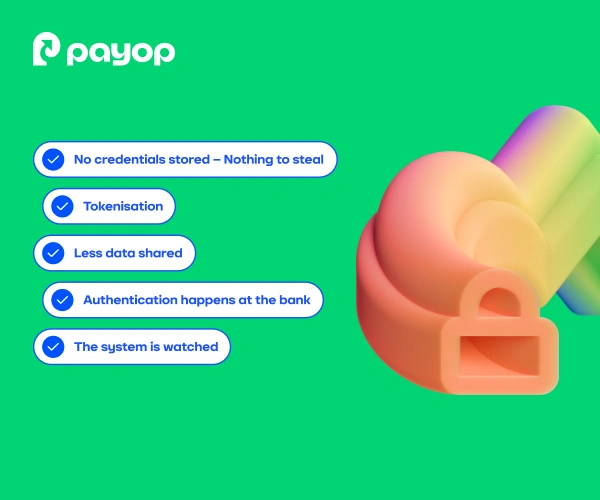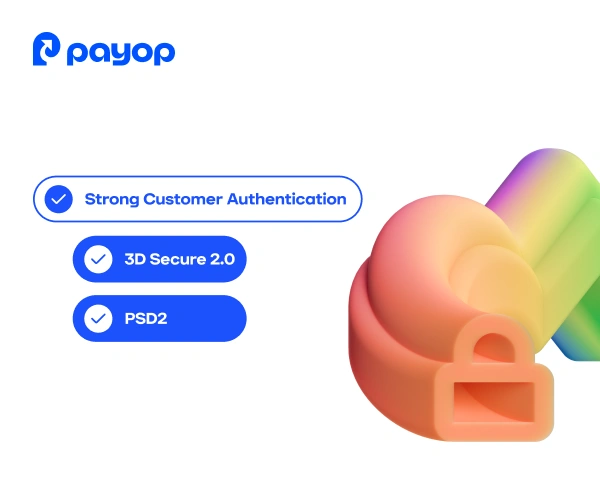Secure by design: How open banking mitigates data breach impact
How to build a local payment strategy for global growth
Latin America’s digital wallet boom: What’s driving adoption in 2025
A merchant’s guide to transaction monitoring
How the UK pays: A merchant’s guide to the evolving payment landscape
How the UK pays: A merchant’s guide to the evolving payment landscape
The United Kingdom is known for its fast-paced financial sector, and when it comes to payments, it’s ahead of the curve. British consumers enjoy a wide variety of secure, efficient, and tech-forward ways to pay, while businesses must keep up with changing habits, regulations, and digital innovations.
Whether you’re launching in the UK or refining your local strategy, this guide breaks down everything you need to know about the UK payment landscape – from key methods and regulations to emerging trends and business challenges.
The general state of payments in the UK
The UK has adopted digital payments faster than most. According to UK Finance, cash was used for just 12% of all payments in 2023.
Today, debit cards dominate, contactless payments are everywhere, and digital wallets are a go-to option, especially among younger shoppers. Nearly everyone has a bank account, internet access is widespread, and consumers are confident using everything from instant bank transfers to Buy Now, Pay Later.
The country also has a mature e-commerce market, meaning expectations for fast, seamless, and secure payment experiences are particularly high. At the same time, regulations are tight, and authorities like the Financial Conduct Authority (FCA) ensure strong consumer protections while encouraging innovation.
For merchants, that means delivering a payment experience that feels native, seamless, and trustworthy, or risk losing customers to competitors who do.
Key payment methods in the UK

Understanding how people in the UK prefer to pay is crucial for providing a seamless shopping experience. Here’s a closer look at the top payment methods dominating the British market.
Bank transfers
The Faster Payments Service (FPS) enables near-instant bank transfers, available 24/7. Additionally, open banking-powered Pay by Bank is gaining popularity, allowing customers to pay directly from their bank accounts – no card required. It’s faster, cheaper, and more secure for both sides.
Digital wallets
Digital wallets are widely used, especially for mobile purchases. Apple Pay is particularly popular among younger consumers thanks to its seamless integration with iPhones and Apple Watches.
Buy Now, Pay Later
Services such as Klarna and Clearpay are well-established in the UK. BNPL solutions are especially popular in the fashion, electronics, and beauty sectors, giving consumers flexibility while boosting merchant conversion rates.
Regulation and compliance
The UK payment sector is not only innovative, it’s also highly regulated. Merchants must understand the key legal frameworks that protect consumers and support financial innovation.
Strong customer authentication (SCA)
The UK implements the PSD2 directive through its own SCA rules, requiring two-factor authentication for most online card payments. It’s a boost for security, but can affect the user experience, so merchants need a smooth, well-integrated flow to avoid friction.
Open banking framework
The UK is a global leader in open banking, giving consumers control over their data and enabling payments without cards. The FCA regulates the space, while the Open Banking Implementation Entity (OBIE) oversees compliance and technical standards. For merchants, this opens doors to innovative payment solutions and deeper customer insights.
Data protection and GDPR
The UK businesses follow the UK GDPR, a close sibling of the EU’s version. Any company handling customer payment info must meet strict standards for privacy and data security.
Trends shaping the UK payment landscape

Consumer preferences and tech developments continue to transform how payments work in the UK. Let’s explore the key trends that are shaping the market.
Decline of cash continues
While cash is still accepted almost everywhere, its role is rapidly diminishing. In 2033, cash is expected to account for just 6% of all payments – a clear sign that the UK is moving toward a cashless society. Businesses must prepare for an increasingly digital-first customer base.
Smarter fraud prevention tools
With rising cybercrime and more complex online scams, businesses are investing in AI-powered fraud detection and behavioural analytics. Payment providers are also integrating machine learning to spot suspicious activity in real time, helping to reduce false declines while protecting customers.
Merging of payments and loyalty
Retailers are increasingly linking payment methods with loyalty programs and rewards. For example, in-app payments might trigger personalised discounts, or card-linked offers may activate automatically during checkout. This creates satisfying customer experiences and encourages repeat purchases.
Embedded payments
Payments are no longer confined to traditional e-commerce checkouts. With the rise of social commerce, marketplaces, and embedded fintech, consumers now expect to pay seamlessly within apps, live streams, or even messages. The payment experience must be invisible, intuitive, and fast.
Challenges for merchants in the UK market
The UK is a high-opportunity market, but it’s also a competitive and tightly regulated one. Here are the biggest challenges international businesses might face when stepping in.
- Navigating regulations: Staying compliant with FCA rules, GDPR, and SCA is non-negotiable.
- High customer expectations: Shoppers want speed, trust, and payment options tailored to their habits.
- Adapting to local preferences: Cards aren’t enough – digital wallets and bank-based methods are essential to gain customers’ approval.
- Strong competition: To stand out, merchants need a polished checkout and a flexible payment selection.
How to adapt your payment strategy
Success in the UK depends on knowing your audience and meeting their expectations. Here’s how to adjust your strategy for the local market:
- Offer a locally optimised checkout with cards, bank payments, and digital wallets.
- Ensure full compliance with data protection and payment regulations.
- Invest in mobile-first design, especially for payment flows.
- Track customer preferences and behaviour, and adjust accordingly.
Merchants that adapt to local expectations and provide payment experiences that feel familiar are more likely to win customer trust and repeat purchases.
How Payop can help
A trusted payment partner makes all the difference. That’s where Payop comes in.
Payop empowers merchants to thrive in the UK by offering a robust set of over 500 local and alternative payment methods, including Pay by Bank. With smart anti-fraud tools, seamless integrations, and multi-currency support, we help businesses simplify payments while staying fully compliant.
Whether you’re scaling up or entering the market for the first time, Payop is here to support your growth.










